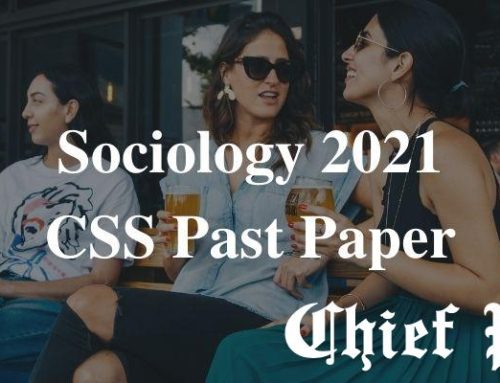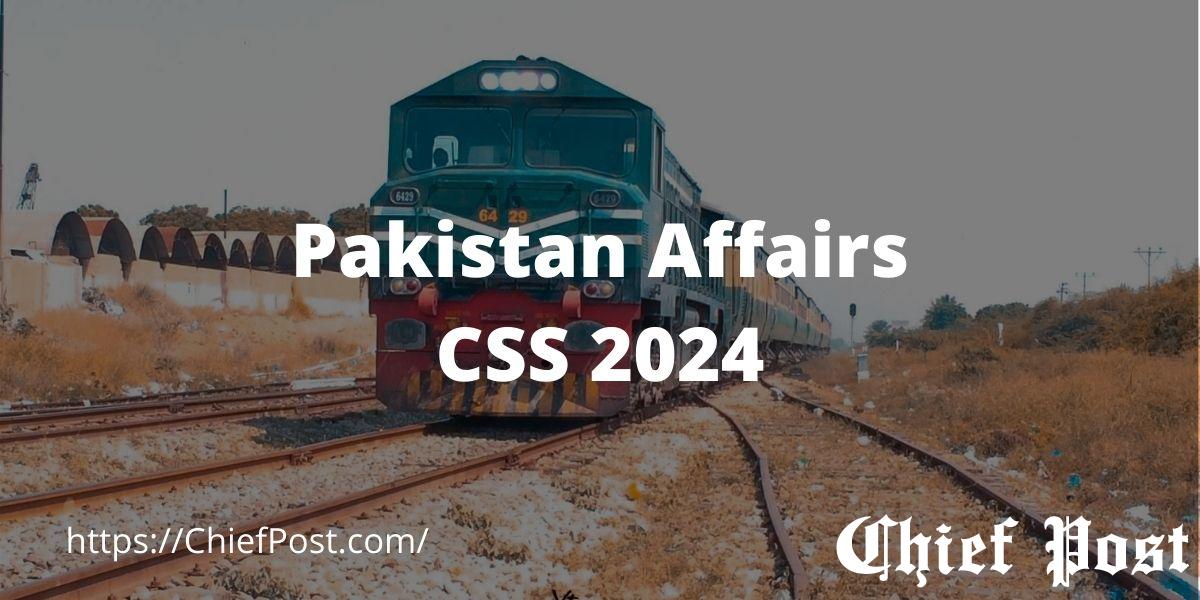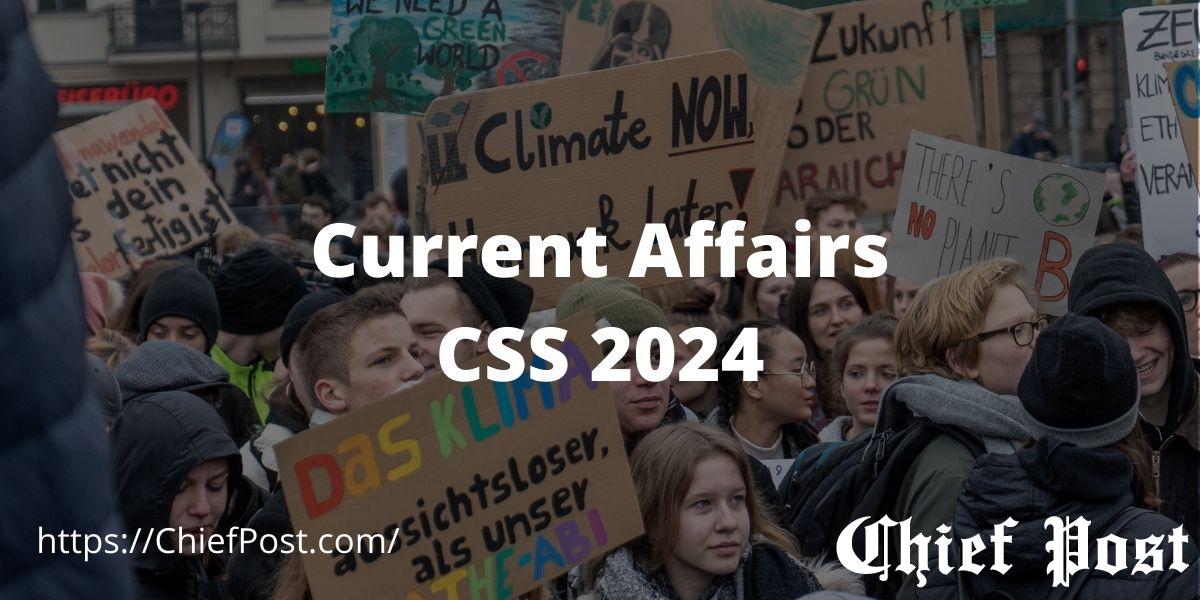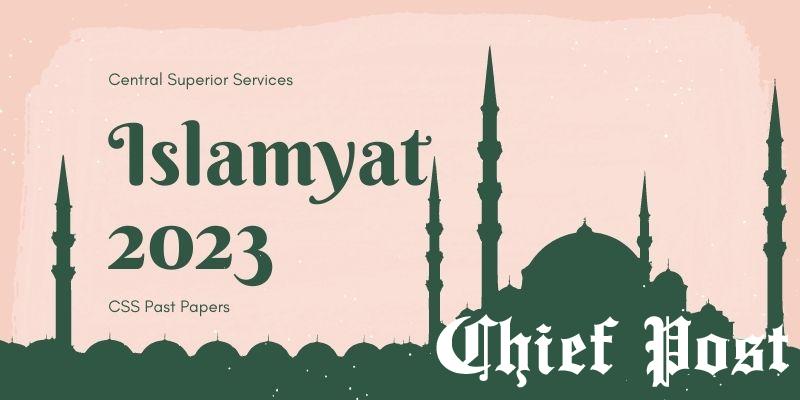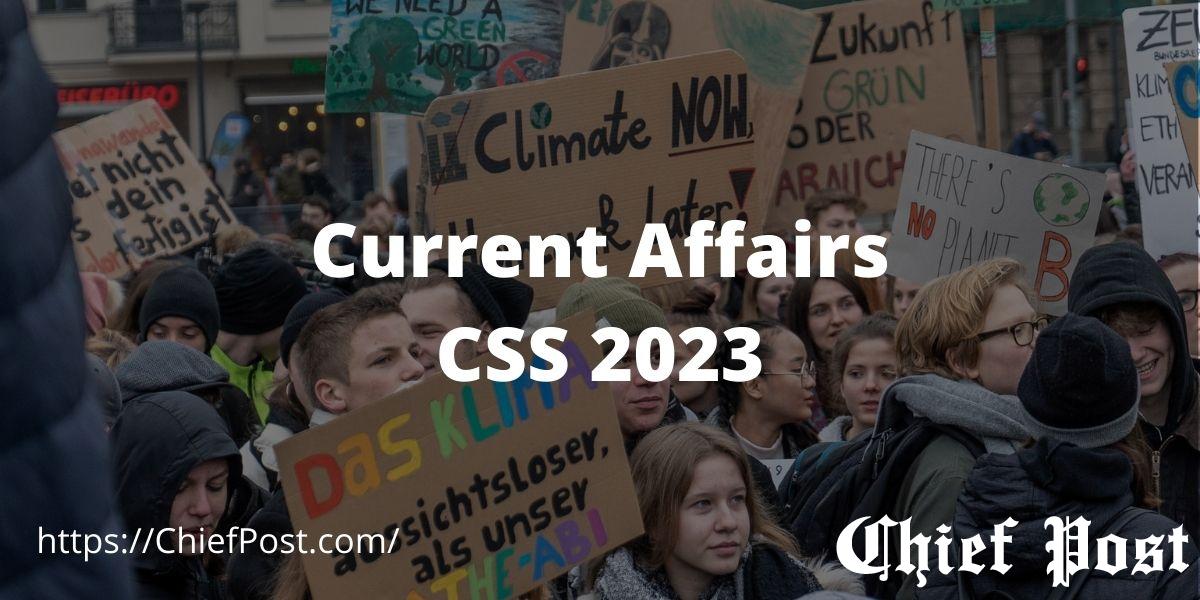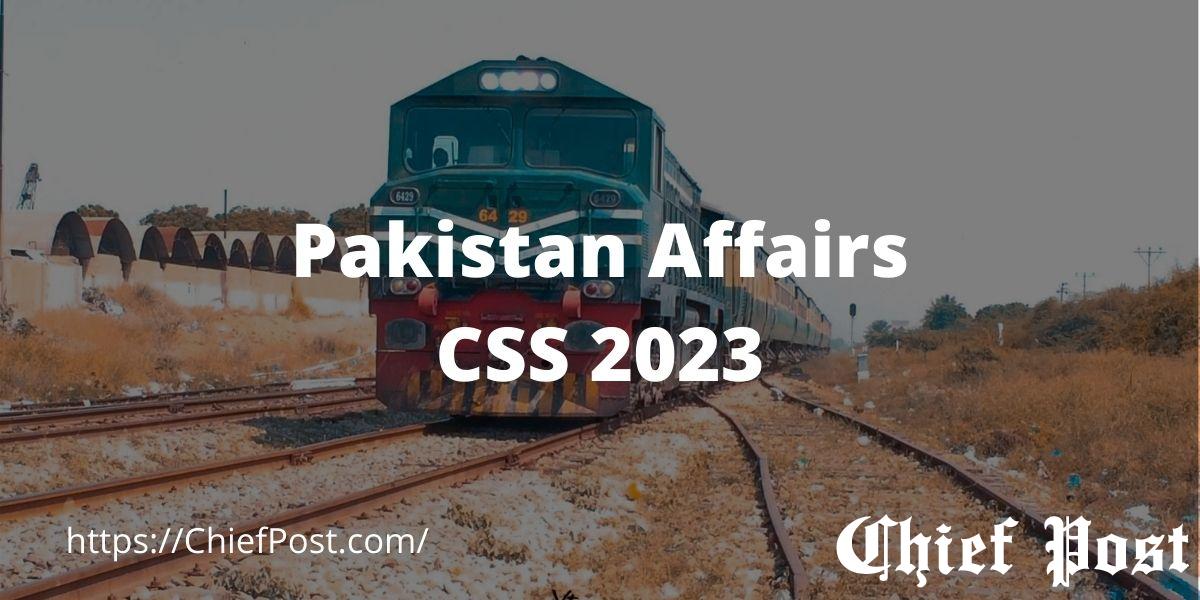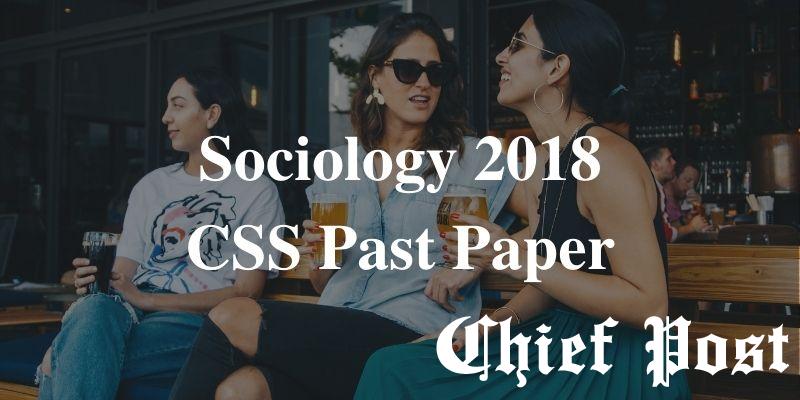
Sociology 2019 — CSS Past Paper
FEDERAL PUBLIC SERVICE COMMISSION
COMPETITIVE EXAMINATION-2019 FOR RECRUITMENT TO POSTS IN BS-17
UNDER THE FEDERAL GOVERNMENT
Sociology
TIME ALLOWED: THREE HOURS
PART-I(MCQS): MAXIMUM 30 MINUTES
PART-I (MCQS) MAXIMUM MARKS = 20
PART-II MAXIMUM MARKS = 80
NOTE:
- (i) Part-II is to be attempted on the separate Answer Book.
- (ii) Attempt ONLY FOUR questions from PART-II. ALL questions carry EQUAL marks.
- (iii) All the parts (if any) of each Question must be attempted at one place instead of at different places.
- (iv) Candidate must write Q. No. in the Answer Book in accordance with Q. No. in the Q.Paper.
- (v) No Page/Space be left blank between the answers. All the blank pages of Answer Book must be crossed.
- (vi) Extra attempt of any question or any part of the attempted question will not be considered.
PART-II
Q. No. 2.
There is continuous struggle between material and non-material cultures. In this process the non-material culture lag behind the material culture and create culture lag. As a sociologist give your opinion how to fill the gap.
(20)
Q. No. 3.
‘Suicide varies inversely with the degree of integration of the social group of which the individuals forms a part’. In the light of this statement, discuss Emile Durkheim theory of egoistic, altruistic, anomic and fatalistic suicide.
(20)
Q. No. 4.
How culture ethnocentrism promotes social change and maintain social order. Comment?
(20)
Q. No. 5.
Auguste Comte gives three evolutionary dimensions of society; Theologian, metaphysic and positivistic. Explain each step with cogent examples.
(20)
Q. No. 6.
Discuss in detail that how unique culture ethos are impediments in the way of social change. Explain in detail the planned social change.
(20)
Q. No. 7.
Evaluate Karl Marx’s contribution to the concept of Alienation. Discuss different types of Alienation given by him.
(20)
Q. No. 8.
Write notes on the following (10 each)
(a) Research proposal on Afghan war syndrome and its impacts on the economy of Pakistan.
(b) The role of religious leaders in the integration of Pakistani society.
(20)
**********

